The problem can quite easily be broken down into small steps (what you partly did in your question).
- Start iterating at the first character
- Create the root node
- If the current character is non-zero, set the value of this node to this character
- If current character is a zero, set this node to zero, create a left and a right node and get back to step 3 for every one of them. (That's the recursive part.)
Below is my implementation of this algorithm.
First, a little bit of setting up:
#include <iostream>
#include <string>
#include <memory>
struct Node;
// Iterator to a constant character, NOT a constant iterator
using StrConstIt = std::string::const_iterator;
using UniqueNode = std::unique_ptr<Node>;
struct Node
{
int value;
UniqueNode p_left;
UniqueNode p_right;
Node(int value)
: value(value) {}
Node(int value, UniqueNode p_left, UniqueNode p_right)
: value(value), p_left(std::move(p_left)), p_right(std::move(p_right)) {}
};
As you can see, I'm using std::unique_ptr for managing memory. This way, you don't have to worry about manually deallocating memory. Using smart pointers is often considered the more "modern" approach, and they should virtually always be preferred over raw pointers.
UniqueNode p_createNodeAndUpdateIterator(StrConstIt& it, StrConstIt stringEnd)
{
if (it >= stringEnd)
return nullptr;
UniqueNode node;
if (*it == '0')
// Create node with appropriate value
// Create branches and increment iterator
node = std::make_unique<Node>(
0,
p_createNodeAndUpdateIterator(++it, stringEnd),
p_createNodeAndUpdateIterator(it, stringEnd)
);
else
{
// Create leaf node with appropriate value
node = std::make_unique<Node>(*it - '0');
// Increment iterator
++it;
}
return node;
}
UniqueNode p_createTree(StrConstIt begin, StrConstIt end)
{
return p_createNodeAndUpdateIterator(begin, end);
}
The first function takes a reference to the iterator to the next character it should process. That is because you can't know how much characters a branch will have in its leaf nodes beforehand. Therefore, as the function's name suggests, it will update the iterator with the processing of each character.
I'm using iterators instead of a string and indices. They are clearer and easier to work with in my opinion — changing it back should be fairly easy anyway.
The second function is basically syntactic sugar: it is just there so that you don't have to pass an lvalue as the first argument.
You can then just call p_createTree with:
int main()
{
std::string str = "050067089";
UniqueNode p_root = p_createTree(str.begin(), str.end());
return 0;
}
I also wrote a function to print out the tree's nodes for debugging:
void printTree(const UniqueNode& p_root, int indentation = 0)
{
// Print the value of the node
for (int i(0); i < indentation; ++i)
std::cout << "| ";
std::cout << p_root->value << '\n';
// Do nothing more in case of a leaf node
if (!p_root->p_left.get() && !p_root->p_right.get())
;
// Otherwise, print a blank line for empty children
else
{
if (p_root->p_left.get())
printTree(p_root->p_left, indentation + 1);
else
std::cout << '\n';
if (p_root->p_right.get())
printTree(p_root->p_right, indentation + 1);
else
std::cout << '\n';
}
}
